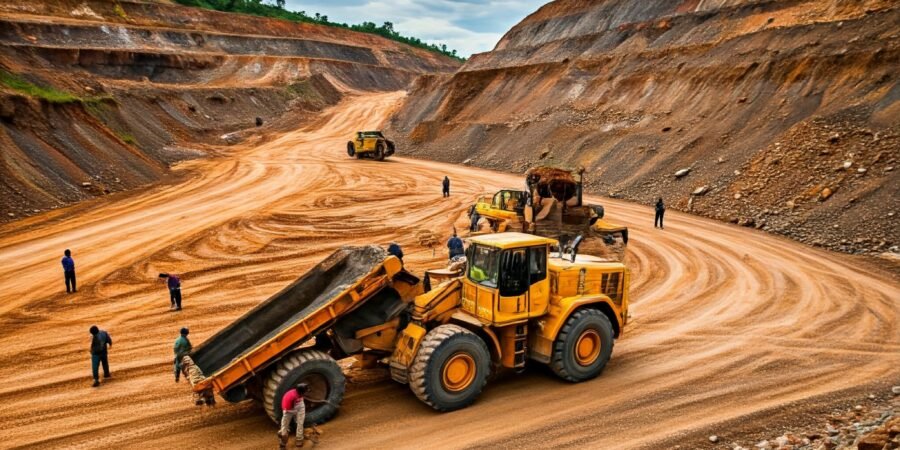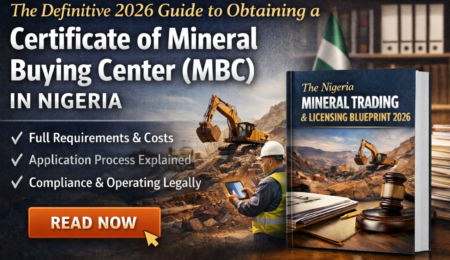As with any profitable venture, mining in Nigeria presents its own set of challenges. But don’t be deterred—every challenge is an opportunity in disguise, and with the right strategies, you can turn obstacles into stepping stones. From security concerns to regulatory hurdles and infrastructure deficiencies, the road to mining success in Nigeria is not without its bumps. However, by understanding and anticipating these risks, you can mitigate them and position your mining venture for long-term growth.
1. Security Threats: Protecting Your Assets
In some regions of Nigeria, security threats are a very real concern for mining operators. Kidnapping, armed robbery, and militant activity can disrupt operations and even result in the loss of valuable equipment and resources. The Niger Delta and certain northern regions, in particular, have been known for security challenges that can cripple mining operations if not properly addressed.
- How to Mitigate Security Risks:
- Partner with Local Security Firms: Working with trusted local security firms and community leaders can help create a security network around your mining site.
- Insurance: Invest in comprehensive insurance policies that cover both your equipment and staff. This can protect your investment in the event of unforeseen disruptions.
- Community Engagement: Fostering positive relationships with local communities is critical. By creating local jobs and economic opportunities, you can significantly reduce the risk of militant or criminal activities targeting your mine.
- Government Collaboration: Collaborate with government forces to ensure that the security situation in your region remains stable. With government support, you can safeguard your operations more effectively.
2. Infrastructure Deficiencies: Overcoming Transport and Power Challenges
One of the biggest bottlenecks in Nigerian mining is inadequate infrastructure. From poor road networks to inconsistent power supply, these logistical challenges can eat into your profits and slow down your operations.
- How to Overcome Infrastructure Issues:
- Invest in On-Site Infrastructure: Many mining operations have found success by investing in their own power generation (solar, diesel, etc.), improving their transportation networks, and building storage facilities on-site.
- Collaborate with Local Governments: Engaging with local and state governments to improve regional infrastructure can open the door to public-private partnerships that benefit both your operations and the surrounding communities.
- Use Local Suppliers: Where possible, engage local suppliers to handle logistics and provide materials, which can help cut costs and reduce delays caused by poor infrastructure.
3. Economic Instability: Navigating Currency Fluctuations and Inflation
Nigeria, like many countries, is subject to economic volatility. Fluctuating currency values, rising inflation, and price instability for raw materials can lead to unexpected costs. These economic risks are especially pronounced in mining, where the upfront investment is heavy, and profitability is closely tied to commodity prices.
- How to Mitigate Economic Instability:
- Hedge Your Investments: Use financial instruments to hedge against fluctuations in exchange rates and commodity prices. This will help ensure that your project stays financially viable, even during downturns.
- Diversify Your Revenue Streams: Relying solely on one mineral or market can expose your mining venture to significant risk. Look for ways to diversify your product offerings or enter multiple international markets.
- Stay Informed: Constantly monitor economic trends and market shifts to anticipate changes in currency or material prices, allowing you to adapt quickly and avoid costly disruptions.
4. Regulatory Uncertainty: Navigating Complex Legal Frameworks
Though Nigeria’s mining sector is regulated by robust laws, the legal environment can sometimes be opaque or inconsistent. Changes in government policies, delays in obtaining permits, or new taxes and royalties can complicate the mining process. Regulatory uncertainty can result in unexpected costs or project delays, which can slow down or even derail mining ventures.
- How to Mitigate Regulatory Risks:
- Work with Legal Experts: Engage with local legal experts who understand the intricacies of Nigerian mining laws. They can help you navigate the permit application process, deal with regulatory bodies, and advise on any upcoming legislative changes.
- Build Relationships with Government Officials: Having strong ties to the Ministry of Solid Mineral Development, Nigerian Geological Survey Agency (NGSA), and other relevant bodies can help you stay ahead of any legal changes and give you a voice in the decision-making process.
- Monitor Policy Changes: Regularly review government reports and attend industry conferences to stay informed about policy changes and the future direction of the Nigerian mining sector.
5. Environmental Concerns: Complying with Sustainability Laws
Mining operations, especially large-scale ones, have a significant environmental impact. The Nigerian government, as well as global stakeholders, are placing increasing emphasis on environmental responsibility. Ensuring that your mining project is sustainable and that it complies with all environmental regulations is not just a legal requirement—it’s a moral imperative.
- How to Mitigate Environmental Risks:
- Conduct Comprehensive EIAs: As discussed in earlier chapters, performing thorough Environmental Impact Assessments (EIA) before you start mining is crucial. It ensures that all potential environmental impacts are addressed and that you are in compliance with Nigerian regulations.
- Adopt Green Technologies: Solar-powered mining, water recycling, and eco-friendly waste disposal methods will help minimize your environmental footprint. Not only will this position your operation as environmentally responsible, but it will also make it more appealing to international buyers.
- Rehabilitation Plans: Always have a plan for post-mining site rehabilitation. This ensures that you leave behind a sustainable environment once mining operations cease and can even create an avenue for additional revenue through land reclamation projects.
6. Local Community Relations: Managing Stakeholder Expectations
Mining projects, especially in rural areas, can sometimes face resistance from local communities who may fear environmental degradation, displacement, or unfair labor practices. Building and maintaining strong community relations is essential to ensure that your project proceeds smoothly.
- How to Overcome Community Resistance:
- Engage Early and Often: Involve local communities from the very start of your mining project. Holding town hall meetings and being transparent about the benefits and risks of mining will foster trust and open lines of communication.
- Create Local Jobs: Invest in training programs and hire local workers for various roles within your mining operation. Providing employment opportunities can significantly reduce community resistance.
- Support Local Development: Go beyond your core mining operations and contribute to local development projects, such as building schools, roads, or health centers. This can improve the overall quality of life for communities and further solidify your position as a responsible mining company.
7. Health and Safety Challenges: Ensuring Worker Welfare
Mining operations, particularly in remote areas, can be dangerous places. Ensuring the health and safety of your workers is critical, both from a moral and legal standpoint. Nigerian laws require mining companies to meet stringent safety standards to protect their employees.
- How to Ensure Safety:
- Implement Rigorous Safety Protocols: Provide personal protective equipment (PPE), regular safety drills, and safety training to minimize accidents.
- Invest in Worker Welfare: Ensure that workers have access to medical care, proper sanitation, and secure living conditions, particularly if your mining site is in a remote area.
- Collaborate with Health Experts: Work with occupational health experts to regularly assess working conditions and improve safety standards.
Pro Tips for Overcoming Mining Challenges
- Develop a Risk Management Plan: Identify potential risks and create contingency plans that allow you to respond quickly and effectively.
- Collaborate with Stakeholders: Build strong relationships with government agencies, local communities, and other stakeholders to ensure smoother operations.
- Stay Agile: Be flexible and ready to adapt your strategy in response to unforeseen challenges—whether economic, environmental, or regulatory.
Want to learn more about the Nigerian Mining Industry? Explore our collection of Ebooks on the Nigerian Mining Industry, covering everything from the lucrative lithium and gold sectors to the vibrant gemstone trade. We delve into critical aspects such as mining operations, environmental compliance, investment opportunities, mining finance, and navigating the complex regulatory landscape. Discover valuable insights and gain a deeper understanding of the Nigerian mining and mineral trade sector. SEE: https://nigerianmineralexchange.com/product-category/ebooks
READ Also:
The Ultimate Guide to Starting a Mining Company in Nigeria
Need a Mining License or Mineral Trade Permit in Nigeria? Here’s How We Can Help





Leave a Reply